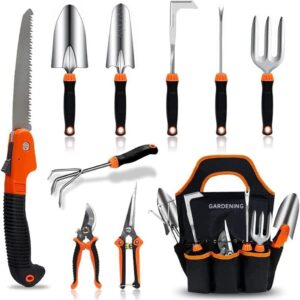Have you ever thought about growing your own food, but aren’t sure where to start? Maybe you live in a small space or have poor soil in your yard. If this sounds like you, raised garden beds might be the solution you’ve been looking for.
Raised garden beds are an increasingly popular way to grow vegetables, fruits, herbs, and flowers in a controlled environment. They are essentially boxes filled with soil that are raised off the ground, allowing for better drainage and soil quality. There are many benefits to using raised garden beds for growing your own food, and we’re here to break down some of the key advantages.
One of the biggest benefits of raised garden beds is that they provide better soil quality. If you have poor soil in your yard, raised beds allow you to fill them with high-quality soil that is well-draining and nutrient-rich. This means you can grow healthier plants that produce more bountiful harvests. Additionally, raised beds are easier to maintain, as you don’t have to worry about tilling and weeding as much as you would with traditional ground planting.
Another benefit of raised garden beds is that they can extend your growing season. The soil in raised beds warms up more quickly in the spring, allowing you to plant earlier and harvest later in the season. This can be especially beneficial for gardeners in colder climates or those who want to get a head start on their growing season.
Raised garden beds also offer better drainage compared to planting directly in the ground. Because the beds are raised off the ground, excess water can easily drain away, preventing waterlogged soil and rotting roots. This is especially important for plants that are sensitive to overwatering, such as tomatoes and peppers.
In addition to better soil quality and drainage, raised garden beds also provide better pest control. By raising your plants off the ground, you can prevent pests like slugs and snails from reaching your plants. You can also easily install barriers around the edges of the beds to keep out larger pests like rabbits and deer. This can help you avoid using harmful pesticides and chemicals to protect your plants.
Raised garden beds also make gardening more accessible for people with limited mobility. Because the beds are raised off the ground, you can easily access your plants without having to bend or kneel down. This can make gardening more enjoyable and less physically taxing for older adults or people with disabilities.
Another benefit of raised garden beds is that they can help you maximize your growing space. If you have a small yard or limited space for gardening, raised beds allow you to plant more in a smaller area. You can also arrange the beds in a way that maximizes sunlight exposure and airflow, resulting in healthier plants and bigger harvests.
Raised garden beds are also customizable and flexible. You can easily adjust the size and shape of the beds to fit your space and gardening needs. You can also add trellises, hoop houses, or other structures to the beds to support climbing plants or protect your crops from harsh weather.
In conclusion, raised garden beds offer a wide range of benefits for growing your own food. From better soil quality and drainage to improved pest control and accessibility, raised beds can help you grow healthier plants and maximize your growing space. If you’re interested in starting your own raised bed garden, there are plenty of resources available online and at your local garden center to help you get started. Happy gardening!






